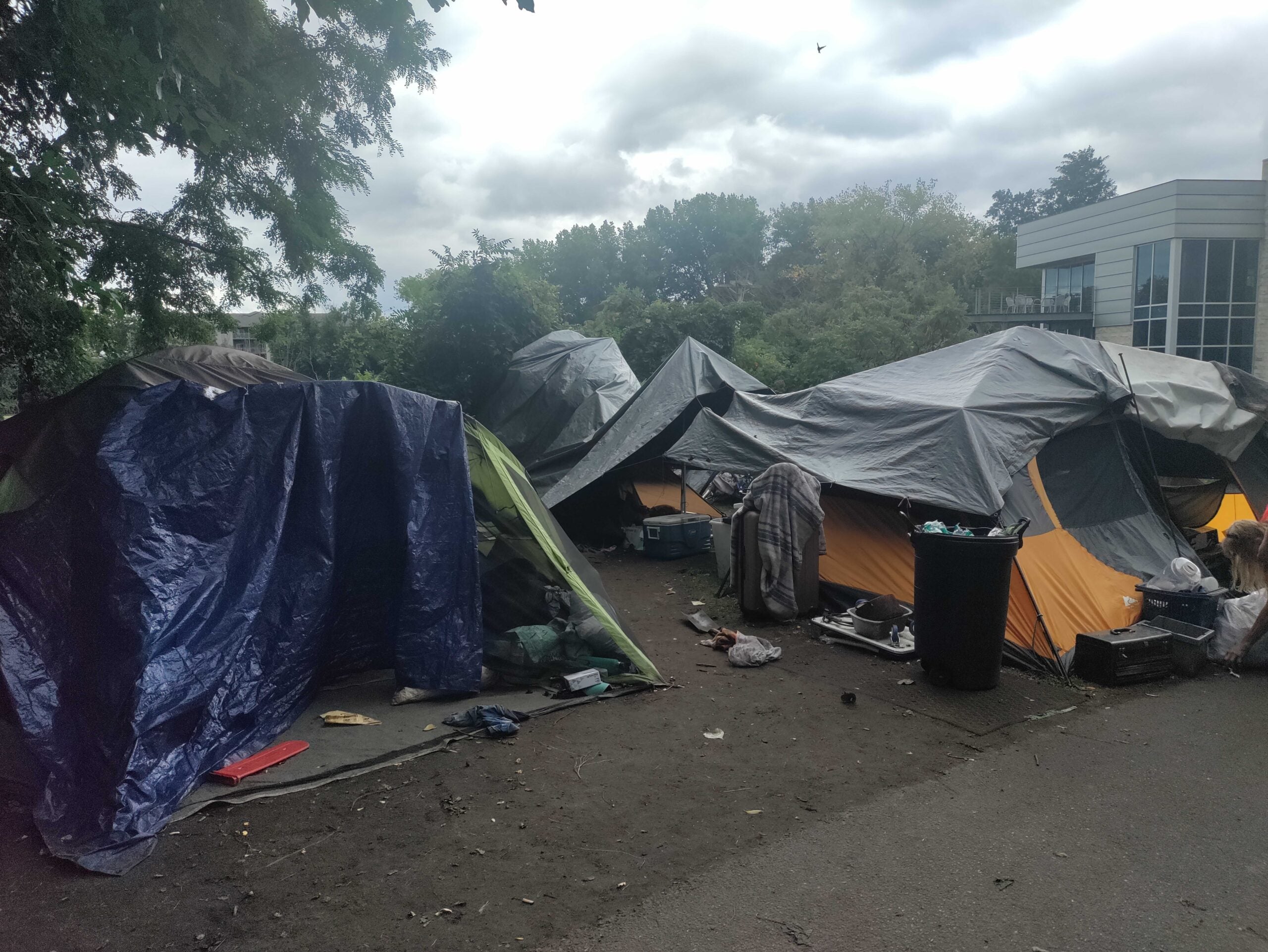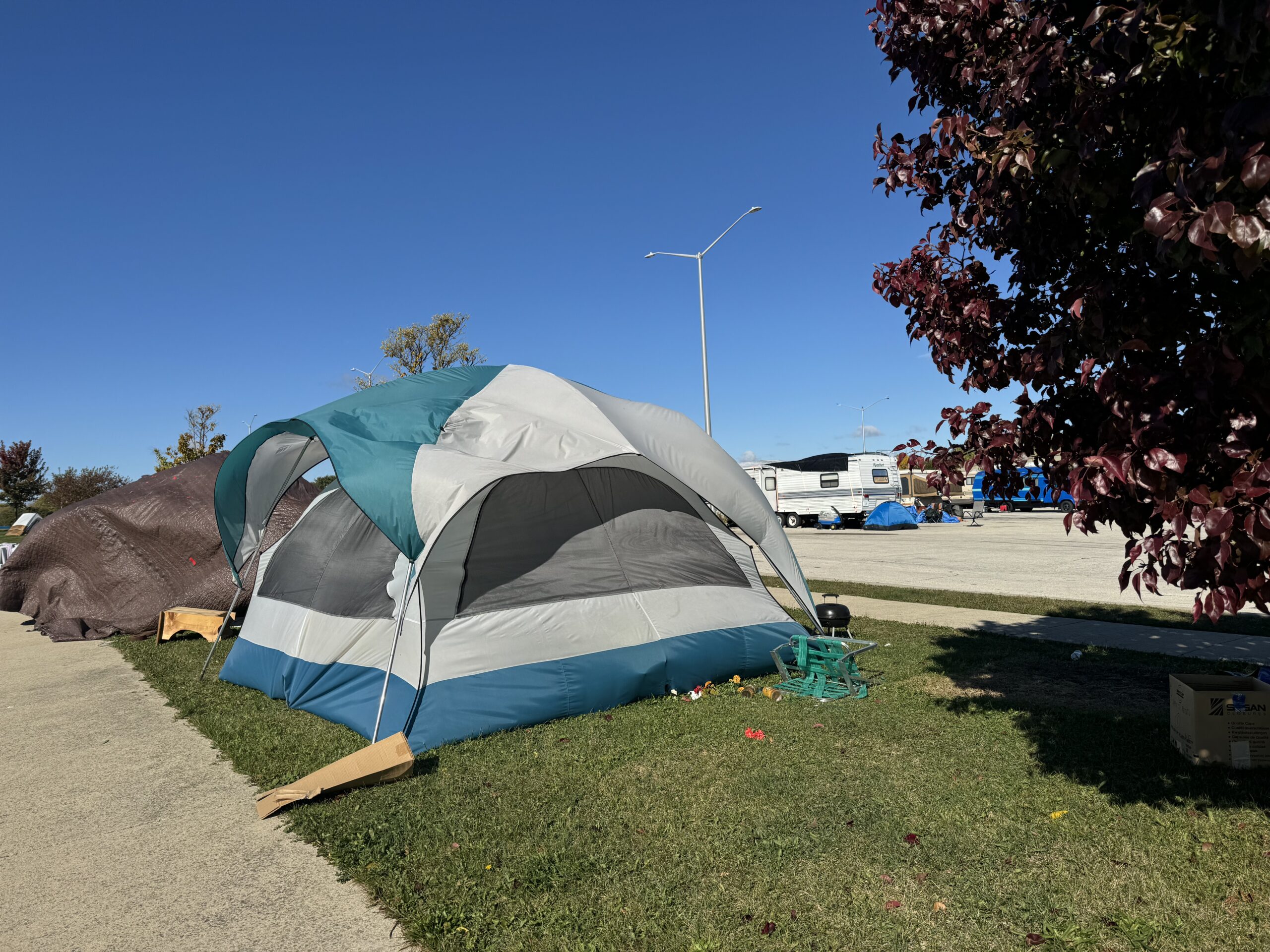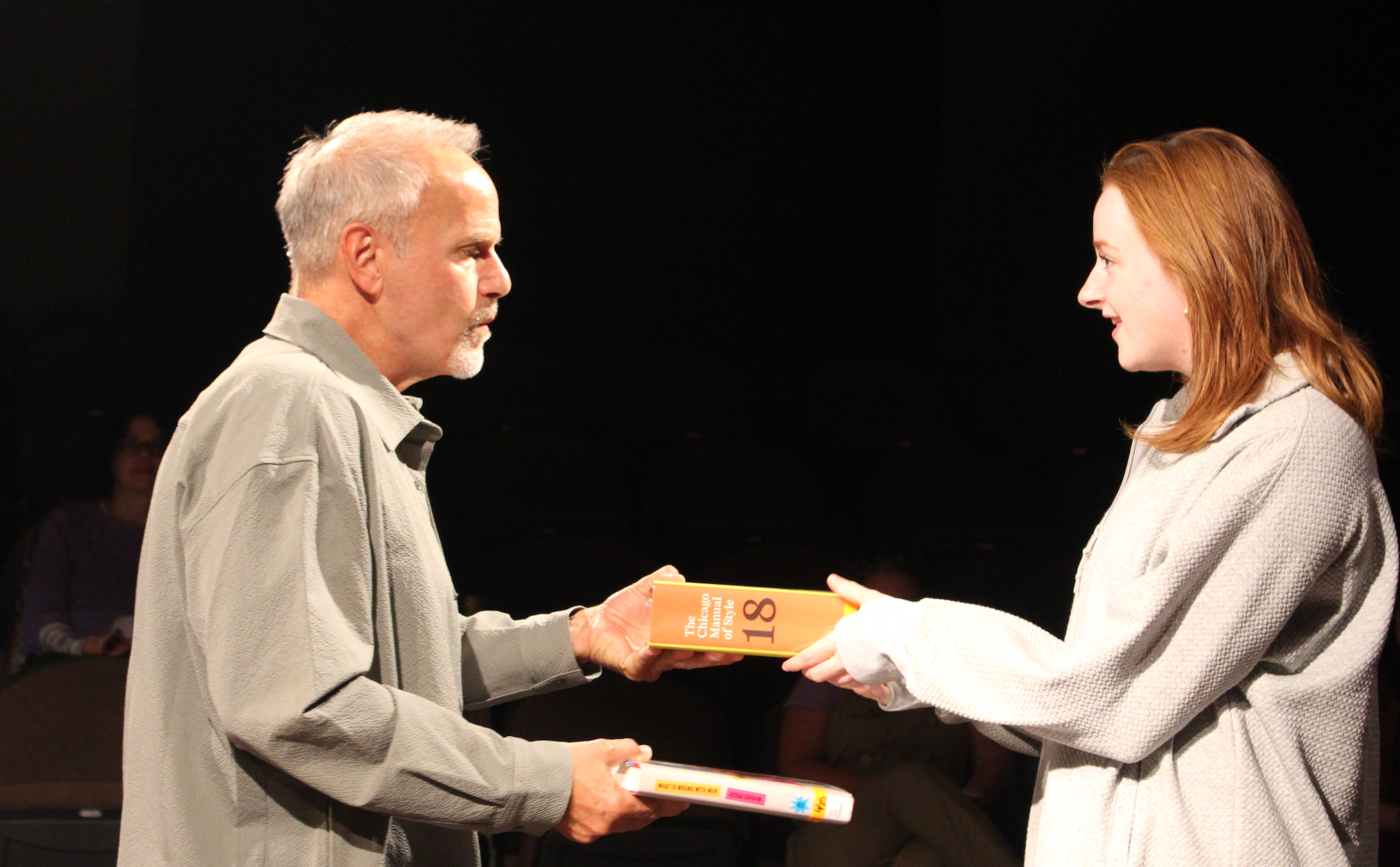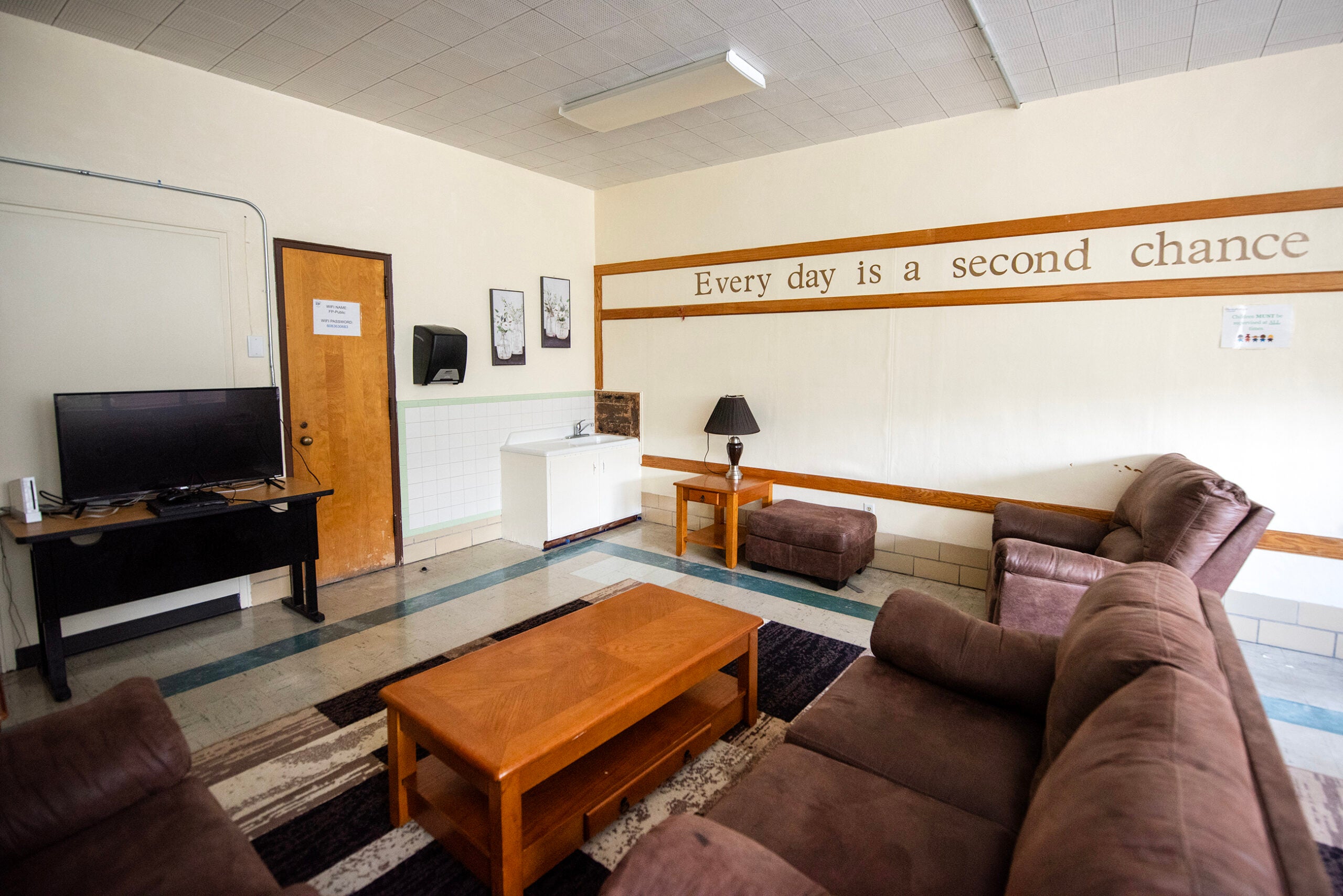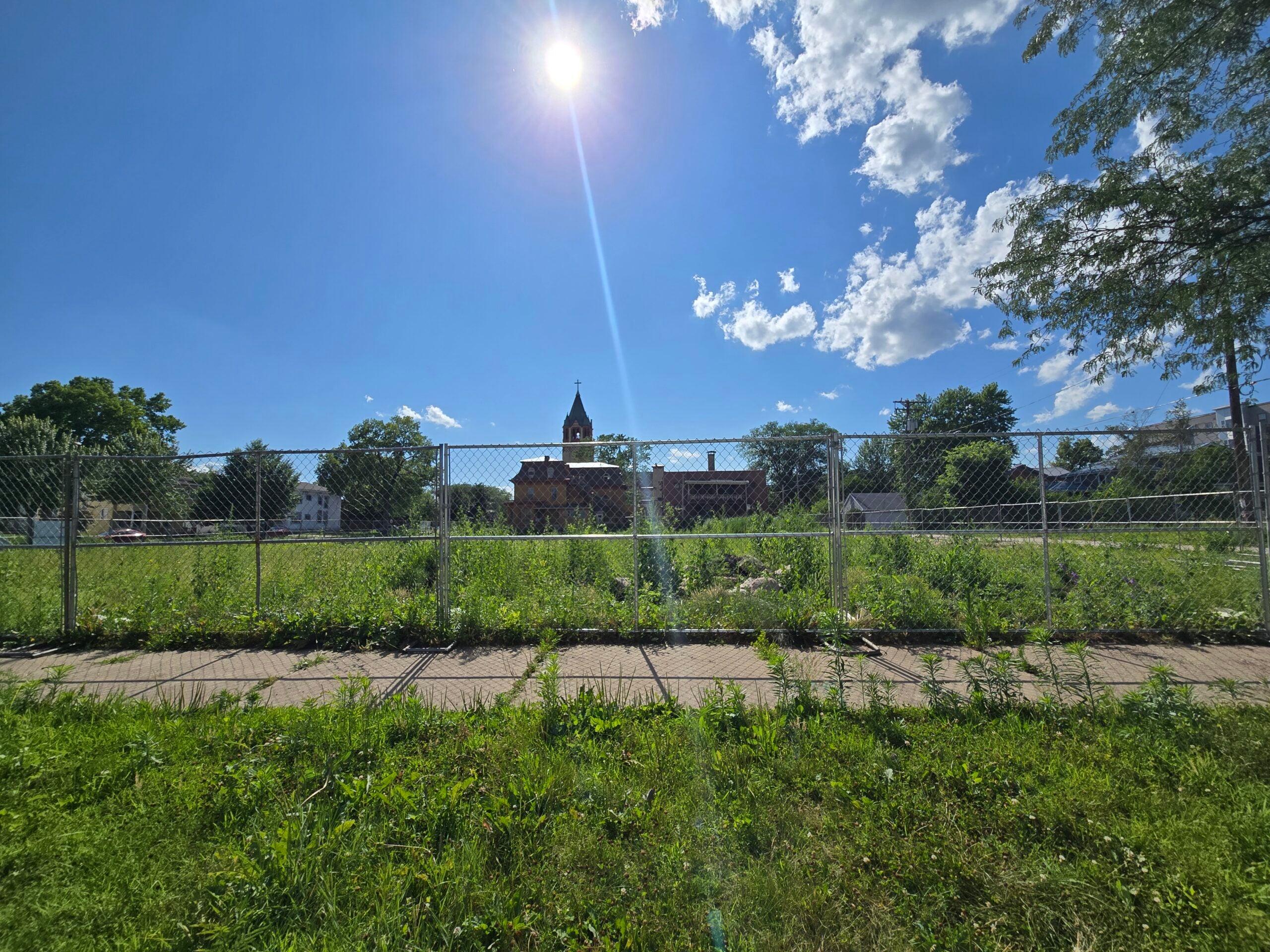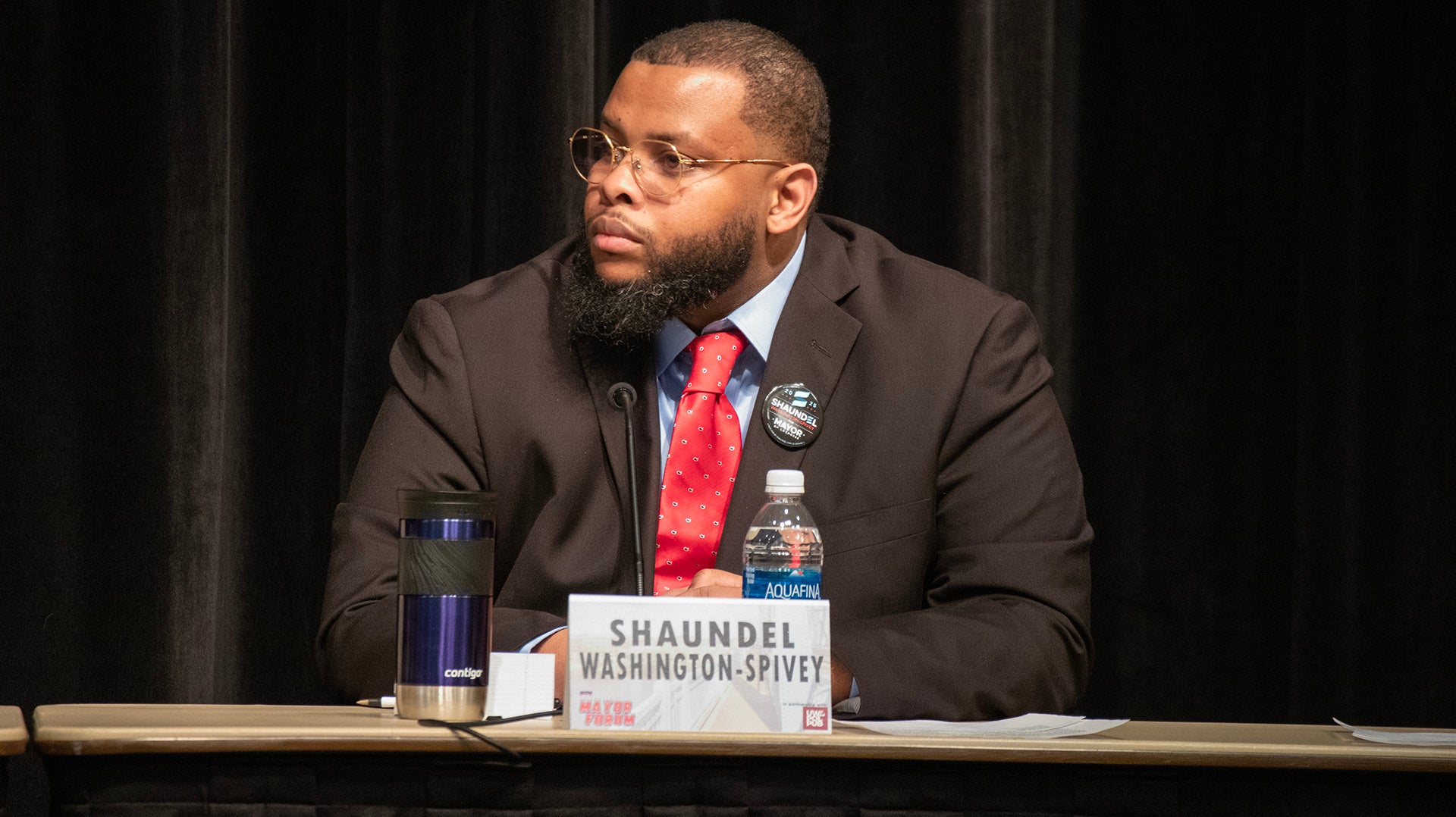Unsheltered residents of La Crosse have about a week to vacate unauthorized campsites within city limits.
For years, city leaders in La Crosse have tried to answer the question of how to deal with the large number of unsheltered people. Social service organizations struggle to keep up with the demand for services and residents balance concern for individuals in need with concern for the safety and livability of the community.
Now, the La Crosse Common Council has passed a new ordinance prohibiting camping on any city property. The city has posted notices that the ban will be enforced beginning Aug. 28.
News with a little more humanity
WPR’s “Wisconsin Today” newsletter keeps you connected to the state you love without feeling overwhelmed. No paywall. No agenda. No corporate filter.
One of the authors of that new regulation is Council Member Mark Neumann, who joined WPR’s Ezra Wall on “Morning Edition.”
This transcription has been edited for brevity and clarity.
Ezra Wall: Why go for a complete ban on all camping on city property?
Mark Neumann: There’s been a long evolution to us getting there. This ban actually came about after folks had a reaction to a report that we received from the mayor’s office and his staff pertaining to possibilities for creating an overnight shelter, and also the need to no longer have people living in deplorable circumstances in our marsh.
EW: If this is intended to eliminate some of those deplorable conditions by literally prohibiting them, what are these people supposed to do?
MN: You know, that’s a question that comes pretty frequently and I like to remember that we really don’t tell other people how they should solve problems in their own lives.
Usually, we allow people to make their own decisions about how they want to solve their problems. And it’s kind of othering to think that the government has to do that for them.
EW: What measures do you favor to address root causes of homelessness?
MN: I’m a firm believer that Article 25 of our International Declaration on Human Rights indicates that all people have a right to shelter. This is something that we as Americans carry as a burden for all Americans, to provide for that service and that possibility and to structure our society in that direction.
The question today is, what can a local government do? And I think that we are really quite constrained, because our resources are so limited, to take great measures other than to make it easier for people to find homes in our city and to help agencies do their jobs. Certainly the state works through the county to do a lot and any way the municipality can facilitate that is a good thing, as well.
EW: If you believe housing is a human right, housing costs money, and the city can’t afford to house everyone, who is responsible? The state? The U.S. Department of Housing and Urban Development?
MN: I think it’s a societal problem. The city has limited resources and I think what happened at our meeting last Thursday was a recognition that we can’t do what we’re not able to do. But there’s a feeling that prevails a lot of times that we should be doing more and that we are guilty for not doing more. But how can you expect anybody to do what they are incapable of doing?
EW: There are other efforts underway within La Crosse to try to have a coordinated approach to offering various kinds of assistance to unsheltered people. What role do you think the Common Council can play in that, or city government more broadly?
MN: The people of La Crosse are very generous and we have multiple agencies who are helping people who are in difficulties, whether they be housing or other personal issues. So this is ongoing.
The question that I think you’re asking is what can the City Council, what can the local government do? What we can do is to facilitate that activity in any way possible. To look for avenues to make it easier for other agencies to be active in our town. Let’s ask what can we do to help you — the other agencies — do your job better.
EW: The the notices that were posted very recently indicated that this ban is going to begin being enforced on Aug. 28, 2024. Is there any chance that other action could be taken that would keep the ban from actually being implemented?
MN: I’m not aware of that being a possibility.
Is there something in southwestern Wisconsin you think we should be talking about on “Morning Edition?” Reach out to us at southwest@wpr.org.

